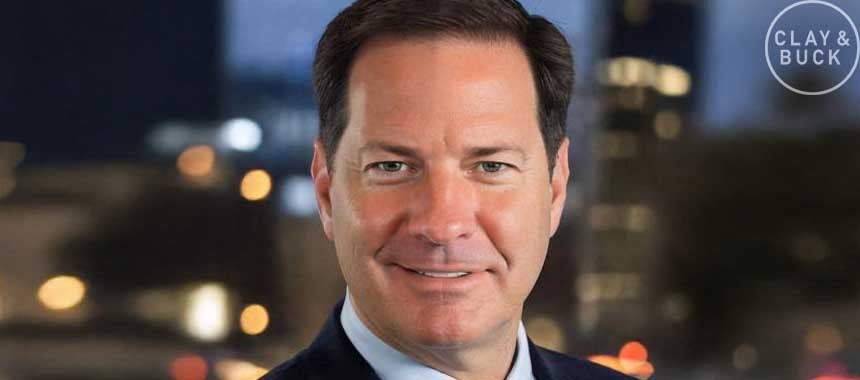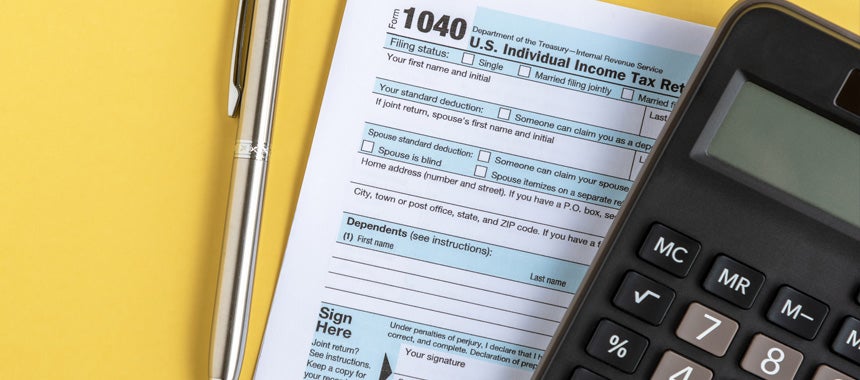Joe Biden’s Wealth Tax Sets Awful Precedent
25 Oct 2021
BUCK: What’s gonna be in the huge Biden bill that Congress may be passing here soon? We have some indications of what’s gonna be in it. I want to talk to you about that. Welcome back to the Clay and Buck show. You have Senator Joe Manchin, who has been one of two bulwarks against the insane spending of their fellow Democrats.
Now, keep in mind, we’re still talking about a whole lot of additional spending over the next 10 years after you already had a $1.9 trillion Democrat rescue package passed earlier this year, trillions and trillions of spending going on during covid. Inflation is getting to be the kind of problem that not even the Democrats can ignore. It’s real. People see it. They feel it. They know.
Plus, you’ve got supply chain snarls, millions of unfilled jobs — and a lot of anxiety, particularly in major cities across the country, about what the winter’s going to be like with covid continuing to have pretty heavy numbers. Now Manchin is closer to a $1.5 trillion top line. Biden had a meeting with him recently trying to pitch him on, “Let’s get it up to $2 trillion.”
So, as we’ve known all along, they’re haggling over the price, and it’s gonna between 1.5 and $2 trillion. And the Democrats will, I believe, pass something here very soon and then they’ll be talking about what a huge success it is and how Biden is amazing and all the rest of it. So get ready for that. But what’s some of the stuff that’s actually in this?
Well, they are talking about a tax on the wealthiest individuals in the country that will go after their holdings in the stock market. So this would be unrealized, so it’s not stock you’ve sold. It’s stock you have — and for the very, very wealthy. It’s not clear exactly how they would implement this. As we know the devil is in the details but here is Treasury secretary Janet Yellen speaking about this proposed tax that would allegedly pay for the Build Back Better Act. Play 12.
 YELLEN: I wouldn’t call that a wealth tax. But, um, it would get at capital gains, uh, which are, uh, an extraordinarily large part of the incomes of the wealthiest individuals, and, uh, right now, uh, escape taxation, uh, until they’re realized, and often they’re unrealized and, uh, the tax benefit from, um, so-called step-up basis. So it’s not a wealth tax but, um, a tax on unrealized capital gains of exceptionally wealthy individuals.
YELLEN: I wouldn’t call that a wealth tax. But, um, it would get at capital gains, uh, which are, uh, an extraordinarily large part of the incomes of the wealthiest individuals, and, uh, right now, uh, escape taxation, uh, until they’re realized, and often they’re unrealized and, uh, the tax benefit from, um, so-called step-up basis. So it’s not a wealth tax but, um, a tax on unrealized capital gains of exceptionally wealthy individuals.
BUCK: It’s not a wealth tax, Clay, just a tax on really wealthy people’s stock transactions — or not even transactions, stock holdings.
CLAY: Here’s my problem with it, okay. Let me start with the big picture problem. Once you start taxing wealthy people’s unrealized capital gains, eventually you open the door to taxing a lot of people out there — who aren’t anywhere near as wealthy — on unrealized capital gains. Let’s not exaggerate here. This is a radical change in the way that we are taxing people.
So the idea that we’re suddenly going to implement this is I think a problem because what have we found out about anything that the government implements that allows them to get more money? Eventually they need more money, and they expand the overall number of people that can be impacted by this. It’s incremental. That’s problem number one.
Problem number two is this is incredibly complicated. It’s in general focused on the 700 wealthiest Americans, okay? So and for people out there, a lot of you may not even spend much time thinking capital gains. A capital gain is, let’s say that you bought a stock for $10, right? Let’s say you bought a stock for $10 and that stock then increases to $20.
You would owe a tax on the 10 to $20 when you sell that stock. If you have not sold that stock, then technically you have not realized a capital gain. It is only what’s called a paper profit. So effectively what the government is doing is they are saying they are going to tax paper profits, that is, unrealized dollars that are essentially sitting in your stockholder accounts, okay? So here’s the complicating factor with this.
Only the 700 richest people are being impacted by this, Buck. We are designing a tax plan on the fly in short order. Biden wants it done before he leaves the country in the next few days, six days from now. Who would you rather bet on, Buck, the 700 wealthiest Americans being advised by the greatest tax attorney and accountants that exist anywhere in the world being able to find loopholes to avoid taxation, or the federal government bureaucrats operating on a strict timetable trying to come up with a radical (and, as yet, never implemented before) policy to tax the wealthiest among us?
 I am betting, Buck, on the cadre of brilliant people that are going to be advising the billionaires. This tax is not going to work. It’s going to be a mess. We’re gonna spend years in litigation over whether it’s even constitutional to tax unrealized capital gains — and, in the meantime, we’re already going to have spent that money, likely driving up substantially more deficits.
I am betting, Buck, on the cadre of brilliant people that are going to be advising the billionaires. This tax is not going to work. It’s going to be a mess. We’re gonna spend years in litigation over whether it’s even constitutional to tax unrealized capital gains — and, in the meantime, we’re already going to have spent that money, likely driving up substantially more deficits.
This is not a zero-cost basis as Joe Biden continues to argue. I think we are buying a lawsuit, and I think we are buying a mess here as the American public, and I think we are setting an awful precedent by trying to tax unrealized paper profits, even if it’s among the wealthiest because eventually it’s gonna trickle down to a lot more of us.
BUCK: They’ve also done this overseas, Clay. They’ve tried a wealth tax, and to your point about what happens, the super rich evade it. They find a way, or they just start… People say, “Oh, no, they can’t, ’cause it’ll be so straightforward. You have to pay this fee.” Well, then they’ll invest in real estate. Now what are you gonna do?
Are you gonna force someone to sell the property that they own? Are you gonna force them to sell the apartment building they’re an investor in because of the unrealized, upside gain? They will move their money around as they can because they have options. The super rich, which is what they’re really talking about here, have not only the greatest army of accountants and lawyers imaginable but also have the most options for where to put their money here in the states and all over the world.
The Europeans tried this. The French had a wealth tax. It was between 1.5 and 1.8% of fortunes over 13 million euros, and guess what? It never got to be about more than 1% of tax revenue in France. People repatriated, they left, they moved to other countries, they moved their money to other countries. So as a socialist wealth-redistribution scheme, it was just a lot of hot air, essentially.
But what’s even more concerning in this country is if you look at the history — and this is really instructive. Look at the history of income tax in America, everybody. It started out as, “This is just on super-rich people.” That was how they sold it in the beginning of the twentieth century. “This is just for the super rich. It’s never gonna come after you!
“We’ll use duties and excises and customs and other things to fund the federal government.” Oh, no. Now you get that nice chunk taken out of your biweekly paycheck all based on the “It’ll just be on the ultrarich” promise from about a hundred years ago, by the way, a little over a hundred years ago now.
So that’s what’s happened. So this is why opening the spigot for the government of yet another mechanism of taxation I think is really concerning. But, you know, they may be able to get this one through because class warfare sells, right? Class warfare works. That’s why Democrats do it all the time.
 CLAY: I think you raised a really good point, Buck, because it’s relatively easy at least to look at a stock price, ’cause we know every single day what the value of a property is on the stock market. But if you invest in real estate, if you invest in — I don’t know — a Major League Baseball franchise, if you invest in artwork, things that are not as tangibly easy to value? And, oh, by the way, what happens if the stock market tanks, and these guys lose billions of dollars? Are we going to somehow allow them to have massive tax credits based on their unrealized capital gains losses?
CLAY: I think you raised a really good point, Buck, because it’s relatively easy at least to look at a stock price, ’cause we know every single day what the value of a property is on the stock market. But if you invest in real estate, if you invest in — I don’t know — a Major League Baseball franchise, if you invest in artwork, things that are not as tangibly easy to value? And, oh, by the way, what happens if the stock market tanks, and these guys lose billions of dollars? Are we going to somehow allow them to have massive tax credits based on their unrealized capital gains losses?
BUCK: Clay, the $500,000 Hunter Biden painting that I now have hanging in my living room, as I hold this, it’s going to increase in value over the years; so what are they gonna force me to do? Sell my beloved Hunter Biden finger painting because of the 20% upside that in some fantasy world I may actually get from the obvious money-laundering scheme that they’re using here for the president of the United States’ son?
Recent Stories

Joe Lavorgna, Counselor to Scott Bessent, Explains Why Trump Accounts Are a Game Changer
The highly respected economist and U.S. Treasury official on the soaring Trump economy.

Inside Trumpworld’s Next Year: Clay & Buck’s Candid Talk With Mark Halperin
The veteran political journalist shares his reporting and insights.

Steve Kerr Slams "Misinformation" While Spreading It
The NBA coach is an avowed and vocal leftist -- and he's always wrong.

Will the Minneapolis Chaos Spread?
C&B warn that the danger now is that the left's bought-and-paid-for sabotage of ICE will spread to other cities.







